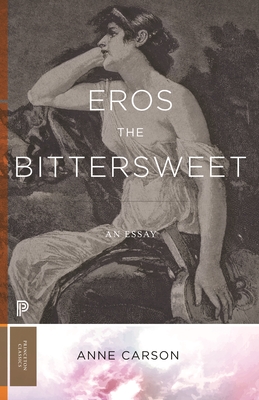More on this book
Community
Kindle Notes & Highlights
If her ordering has a descriptive intention, eros is here being said to bring sweetness, then bitterness in sequence: she is sorting the possibilities chronologically. Many a lover’s experience would validate such a chronology, especially in poetry, where most love ends badly. But it is unlikely that this is what Sappho means. Her poem begins with a dramatic localization of the erotic situation in time (dēute) and fixes the erotic action in the present indicative tense (donei). She is not recording the history of a love affair but the instant of desire. One moment staggers under pressure of
...more
Because of his longing for something gone across the sea a phantom seems to rule the rooms, and the grace of statues shaped in beauty comes to be an object of hate for the man. In the absences of eyes all Aphrodite is vacant, gone.
I hate and I love. Why? you might ask. I don’t know. But I feel it happening and I hurt. (Catullus 85) The poets of the Greek lyric tradition sometimes conceptualize the erotic condition as starkly as this, but Sappho and her successors in general prefer physiology to concepts. The moment when the soul parts on itself in desire is conceived as a dilemma of body and senses. On Sappho’s tongue, as we have seen, it is a moment bitter and sweet. This ambivalent taste is developed, in later poets, into “bitter honey” (Anth. Pal. 12.81), “sweet wound” (Anth. Pal. 12.126), and “Eros of sweet tears”
...more
The Greek word eros denotes ‘want,’ ‘lack,’ ‘desire for that which is missing.’ The lover wants what he does not have. It is by definition impossible for him to have what he wants if, as soon as it is had, it is no longer wanting. This is more than wordplay.
Hunger is the analog chosen by Simone Weil for this conundrum: All our desires are contradictory, like the desire for food. I want the person I love to love me. If he is, however, totally devoted to me he does not exist any longer and I cease to love him. And as long as he is not totally devoted to me he does not love me enough. Hunger and repletion. (1977, 364)
Emily Dickinson puts the case more pertly in “I Had Been Hungry”: So I found that hunger was a way of persons outside windows that entering takes away.
Ἄτθι, σοὶ δ’ ἔμɛθɛν μὲν ἀπήχθɛτο φροντίσδην, ἐπὶ δ’ Ἀνδρομέδαν πόται Atthis, your care for me stirred hatred in you and you flew to Andromeda. (LP, fr. 131) Who ever desires what is not gone? No one. The Greeks were clear on this. They invented eros to express it.
There is something pure and indubitable about the notion that eros is lack. Moreover, it is a notion that, once adopted, has a powerful effect on one’s habits and representations of love.
He seems to me equal to gods that man who opposite you sits and listens close to your sweet speaking and lovely laughing—oh it puts the heart in my chest on wings for when I look at you, a moment, then no speaking is left in me no: tongue breaks, and thin fire is racing under skin and in eyes no sight and drumming fills ears and cold sweat holds me and shaking grips me all, greener than grass I am and dead—or almost I seem to me. (LP, fr. 31)
It is not a poem about the three of them as individuals, but about the geometrical figure formed by their perception of one another, and the gaps in that perception. It is an image of the distances between them. Thin lines of force coordinate the three of them. Along one line travels the girl’s voice and laughter to a man who listens closely. A second tangent connects the girl to the poet. Between the eye of the poet and the listening man crackles a third current. The figure is a triangle. Why? An obvious answer is to say that this is a poem about jealousy. Numbers of critics have done so.
...more
The word ‘jealousy’ comes from Greek zēlos meaning ‘zeal’ or ‘fervent pursuit.’ It is a hot and corrosive spiritual motion arising in fear and fed on resentment.


